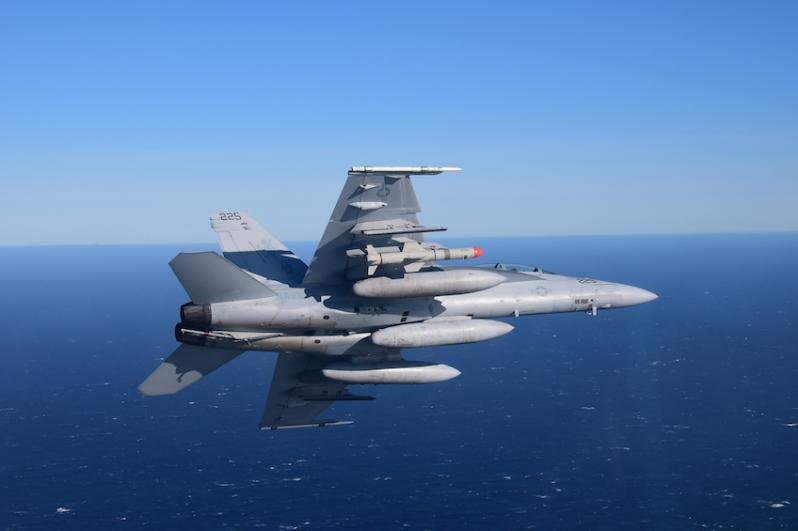An F/A-18 carries the new Harpoon Block II+ missile during a flight test. U.S. Navy photo
PATUXENT RIVER, Md., Nov. 20 (UPI) -- The U.S. Navy has free-flight tested a new Harpoon missile that can receive in-flight information for improved targeting of moving maritime targets.
The test of the missile, designated as the Harpoon Block II+, conducted with Boeing, was the "culmination of 152 lab-test sessions, 15 aircraft ground tests and 16 flight tests," the U.S. Naval Air Systems Command said.
"This successful free-flight test is a tremendous achievement for the joint Boeing and Navy team and reflects their hard work and dedication over the past several years," said Cmdr. Matt Farr, Harpoon/ Standoff Land Attack Missile—Extended Range deputy program manager. "We are on schedule to deliver this important capability to the fleet in 2017, giving the U.S. Navy a significant advantage in anti-surface warfare."
In the test conducted in California, an inert Harpoon Block II+ received targeting data from an F/A-18 while in-flight through its network-enabled datalink. The missile then acquired a moving ship target using its active radar seeker and guided itself to impact.
"The Harpoon missile is the premier surface warfare weapon in service today and we are working to ensure that it remains viable and lethal into the future." said Capt. Jaime Engdahl, Precision Strike Weapons program manager. "Block II+ is a critical capability for us and we are taking every opportunity to pace the growing maritime threat by continuously improving Harpoon's range, survivability, and lethality."
The AGM-84N Harpoon Block II+, which will be equipped with a new GPS guidance system, is for use against both maritime and land targets.
Additional testing for the new variant is scheduled for next year, the Navy said.















